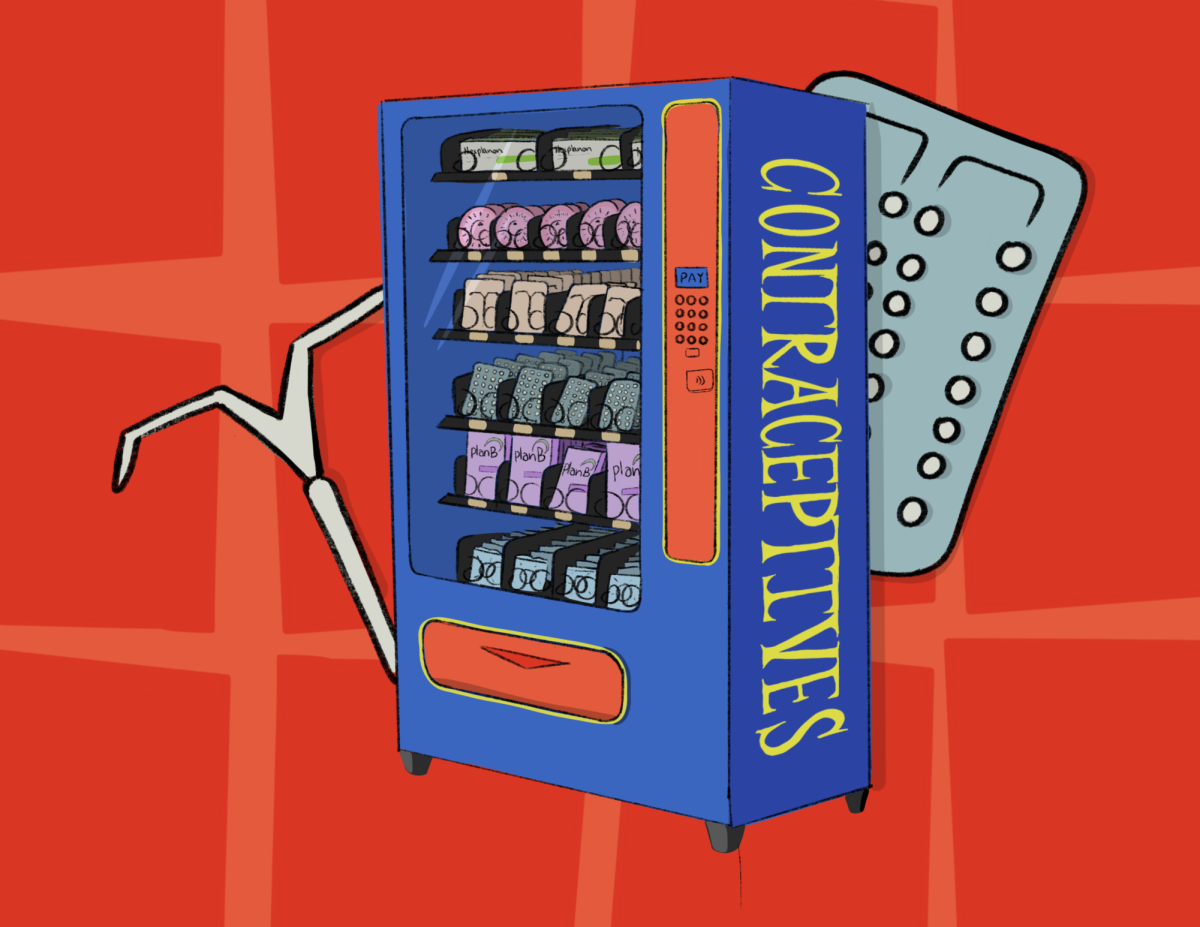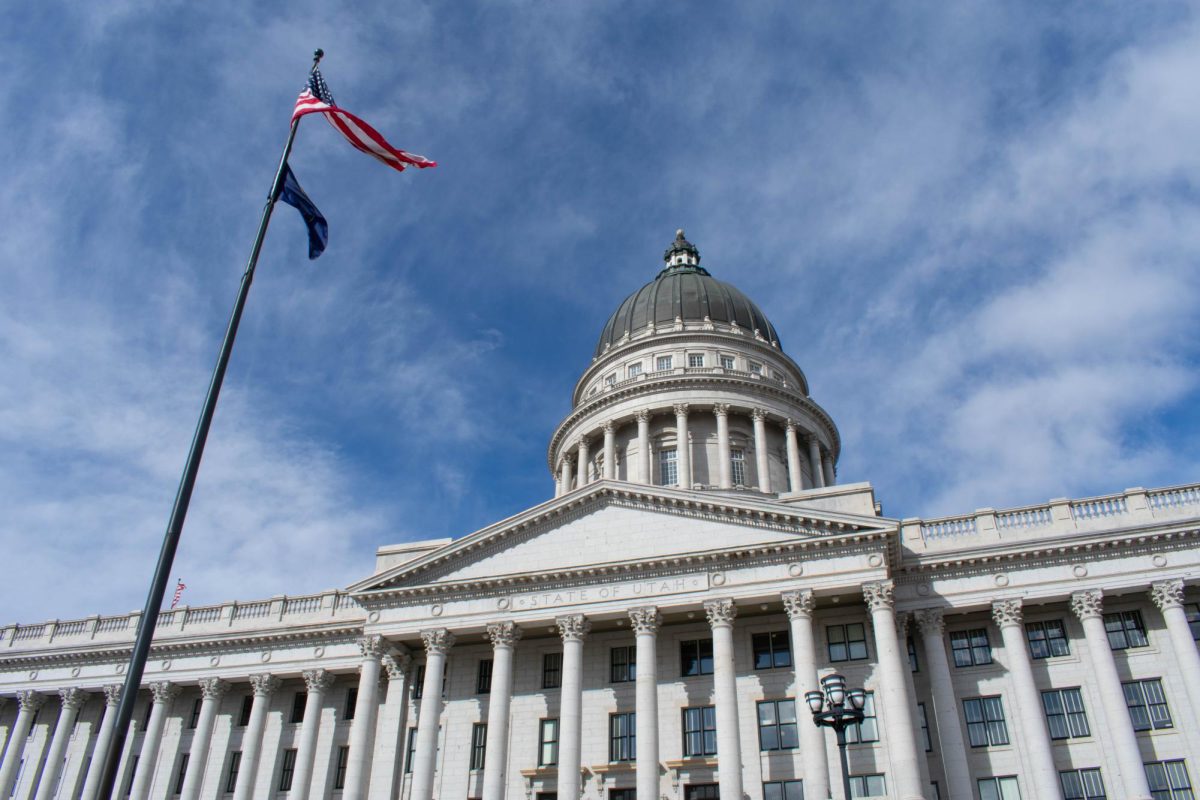Compared to other developed nations, the U.S. is less exceptional than it would appear. As time goes on, the criticism levied against America has begun to sound more reasonable.
However, we lack more than most in one area: guaranteed paid leave. Out of 195 countries, only six don’t nationally guarantee paid leave for workers. In the face of this nationwide deprivation, Sen. Stephanie Pitcher wants to give victimized public employees in Utah what workers around the globe enjoy.
While it would be a tremendous step forward for Utah if passed, S.B. 174 provides few workers with a fraction of what they deserve. Utah needs to modernize the rights of workers. S.B. 174 is a step in the right direction, but it is not enough.
Who Stands to Benefit
S.B. 174 requires state employers to provide employees with a week of paid safe leave. This leave is allotted to employees if they or an immediate family member has recently experienced sexual assault, domestic violence, stalking or human trafficking. The bill calls it a safe leave. It allows employees to seek mental health services or legal recourse. It also cannot be removed from any other type of leave or benefits, protecting workers from employer punishment or determent. However, workers can’t cash out on unused paid leave time upon termination.
In an interview with Sen. Pitcher (D-Salt Lake City), she explained her motivation behind sponsoring the bill.
“For people who live paycheck to paycheck, it’s really hard to take a day or two off to go testify in court,” she said. “To provide that continuity and economic stability for somebody who’s going through potentially one of the hardest times of their lives is really important.”
Pitcher said the primary inspiration behind S.B. 174 was Utah’s parental leave program. This program is also limited to state employees. Other states like New York, Washington and Minnesota have family and medical leave programs similar to that proposed in the bill. However, while many states protect workers on leave from replacement, they do not guarantee pay during these times of crisis.
Drawbacks of the Bill
Some state employees may have difficulty obtaining the benefits. Others won’t benefit from this bill at all.
For one, workers must give a seven-day notice before taking a safe leave unless otherwise prevented. Additionally, part-time employees stand to receive a portion of what full-time employees do. This allows employers to determine how much safe leave they confer to part-time workers. The bill also excludes employees of higher education institutions and both boards of education.
These drawbacks open the possibility for various issues. Part-time workers who are already exempt from other forms of leave may not have time to get comprehensive treatment. The average stay at psychiatric hospitals can be days or weeks long, depending on the severity of the patient’s status. At best, affected workers may have to start using their accrued sick leave part-way through their treatment. This assumes they have enough or any leave in the first place.
Another problematic element of limiting part-time employees’ access to safe leave is the fact that far more part-time workers have disabilities. Given that those with disabilities are also far more likely to be victims of sexual assault, there begins to form a glaring issue in the perceived priorities of this bill. On the one hand, the bill pushes for the protection of vulnerable workers. However, it marginalizes yet another vulnerable group of workers for the sake of incentivizing full-time work.
In a state like ours, it isn’t shocking to see even a bill made to remedy an issue of capitalism cannot help but build off of long-standing injustices.
Is S.B. 174 Enough?
In a conservative state like Utah, S.B. 174 has its benefits and drawbacks. One may wonder if this bill is enough to secure a better future for all working people. The answer to this is no.
Sen. Pitcher’s and other legislators’ utter lack of conviction to expand these benefits to the private sphere is the leading reason. According to Sen. Pitcher, Utah “will continue to lead by example” and compete with corporations by supplying state employees with benefits similar to those introduced in her bill. As working people, and students we must demand that Utah puts us first over corporations.
Without collective action, working people in the United States will continue to work their lives away for another’s profit.
To live and work in a nation of abundance and receive substandard compensation is not a tolerable shame. It is a detestable act of thievery and an insult to liberty.
Do not let S.B. 174 be just another link in your chains. Let it be a stone in the foundation of a brighter future for the working people of Utah, the United States and the world.




















Katelyn Guido • Feb 27, 2024 at 2:05 pm
I’m sorry that a troll posted a comment on your article. I think that you gave an easy-to-follow summary of the bill and explained its potential impacts. Keep up the great work!
John Hedberg • Feb 27, 2024 at 9:12 pm
Katelyn apparently couldn’t find anything to refute in my comment, so she chose the only option she had left: call me names while she practices the same behavior she’s falsely accusing me of practicing. I wish I could have seen that coming: Keep up the good work~! 😂😋
John Hedberg • Feb 26, 2024 at 10:51 pm
Do I even need to say it? 😂 One side of every issue, and always the same side! This is why The Chronic is such a valuable tool for students, and such a great use of student funds. It’s all the diversity~! 😋
Professor Thomas Sowell wrote a book a couple of years ago about “collectivism” for public employees in public education, called “Charter Schools and Their Enemies”. He took school districts that had a regular public school (run by teacher’s union collectives) side-by-side with a charter public school (run by independent educators) in the same neighborhood, sometime even in the same building. What he found is that the public schools run by the collectives had reading and math scores that were uniformly below standard grade level, no matter the grades each school taught, and that the non-collective charter public schools had reading and math scores that not only met grade standards, but often exceeded grade standards (students were ahead for their age).
As an economist, he put the statistics side by side in each school district, and he showed that consistently, collectivist public employees delivered failing students at the exact same funding levels that non-collectivist public employees delivered exemplary student achievement, in the exact same neighborhoods. He also showed that the collectivist-run districts were at war with the charter schools, trying to shut them down to hide their embarrassing comparison results, even though the parents of the charter school students were doing backflips for joy!
If I were interested in this question, I’d also check out a documentary film by Davis Guggenheim called “Waiting For Superman” (any public library), the same progressive film maker who produced Al Gore’s Climate Change icon, “An Inconvenient Truth”. Guggenheim did a similar decade long study of charter schools vs collective schools, and he found nearly identical results.
Of course, you could also just study the history of collectivist societies like the Soviet Union, People’s Republic of China, or even modern Venezuela to see similar results play out consistently. In every case, collectivists championed compassion for the “oppressed”, and in every single case, the collectivists ended up “oppressing” them with even less compassion than the capitalists, who typically had higher living standards, better education, less hunger and privation, and a more class-fluid society where hard work could launch anyone from the working class to the middle or upper class in a single generation. The U evidently doesn’t teach this history, but it exists, and the scientific data show the truth of it.
BTW, this history also shows that England, France, and the United States were the first 3 nations on Earth to end slavery, where it was the norm in every other location, among every people, and these societies are still considered the most inclusive in history, which can be easily observed today, since these 3 cultures are prime daily destinations for immigrants from all over the planet looking for a better life in the Great Melting Pot of “The American Dream”.
Just food for thought, since your article shows no observable sign that you’ve ever been exposed to these data, these sources, or this history. You’ve got nothing to lose, and everything to gain, by finding out what happened when other people tried out the very same policies you’re presently advocating, and you won’t have to suffer one bit to see what they learned! Isn’t study amazing?